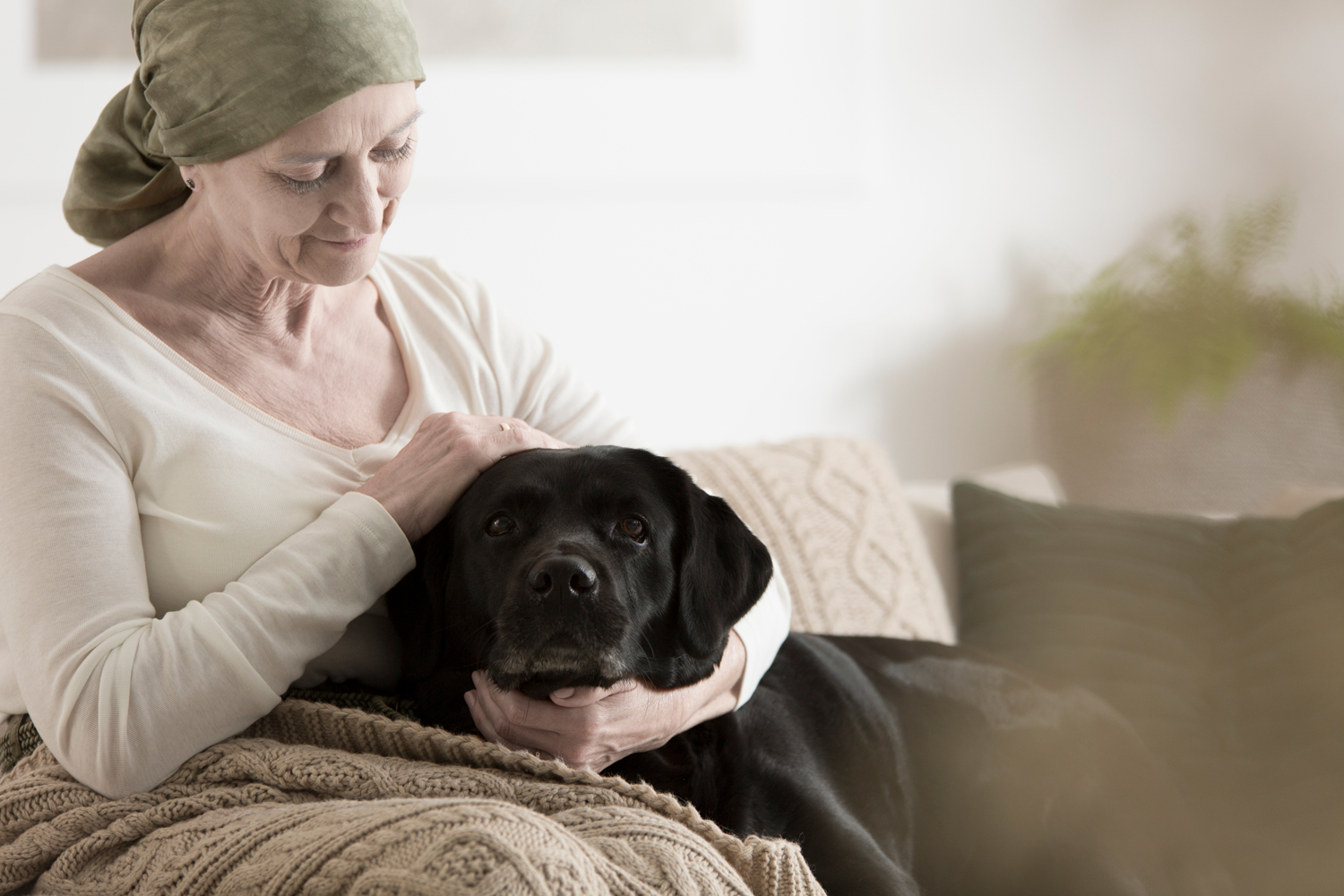Is it safe for my partner going through cancer treatment to be around our family pet?

Ajit Kumar Bisen, oncologist at the University of Texas MD Anderson Cancer Center in Houston Photo courtesy of the University of Texas MD Anderson Cancer Center
AJIT KUMAR BISEN: Most American households have pets. These important family members can provide many benefits for your loved one during chemotherapy or other cancer treatments, but people with cancer should take certain precautions since their immune system may be compromised.
Not every person or treatment is the same, and different species of pets pose different risks. When planning to start treatment, you or your partner should mention to your health care providers what kind of pet you have. Is it a dog or a cat? A reptile, chicken, duck or fish? These are important distinctions because reptiles, amphibians and birds may carry salmonella and generally pose a higher infection risk to people undergoing treatment than cats and dogs, and it may be best to have someone else care for them during treatment. Hamsters, gerbils, mice, guinea pigs and ferrets may carry salmonella too, even when they don’t seem sick. But any pet could increase the chance of an infection if treatment weakens a person’s immune system.
To protect your loved one, make sure your family pet is healthy and up to date on vaccinations and veterinarian visits. Your partner should avoid handling the pet’s feces and delegate tasks like cleaning up after the dog, emptying the cat’s litter box, and cleaning aquariums or cages to someone else.
It may be hard, but my general advice to cancer patients is to not share the bed with pets during treatment. Saliva carries germs, and pets may lick your loved one’s face, a surgical site that’s healing, or the location of a port, which is a tube inserted into the body to deliver medications.
If a cat or dog bites or scratches your partner, be sure they wash the affected area and let the health care team know right away. Your loved one may need to take antibiotics to prevent infection. Even a minor scratch could send them to the hospital with a severe infection.
With all these caveats, the benefits of pets for people with cancer cannot be overstated. A pet shifts attention from illness and offers a reprieve on hard days. Pets can provide extra motivation to get out and take a walk as well. Pets are a key part of the support network, and with precautions in place, your loved one can enjoy the family pet throughout their treatment.
CANCER AND PETS // The American Society of Clinical Oncology offers tips for caring for a pet after your cancer diagnosis. // The American Cancer Society discusses how a pet helps some people with cancer to cope with their emotions.
The expert’s response was edited for clarity and based on an interview with Kendall K. Morgan.
Cancer Today magazine is free to cancer patients, survivors and caregivers who live in the U.S. Subscribe here to receive four issues per year.





